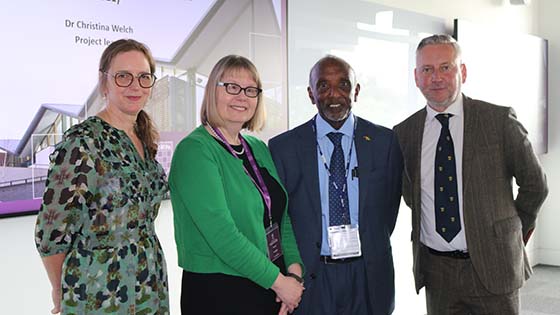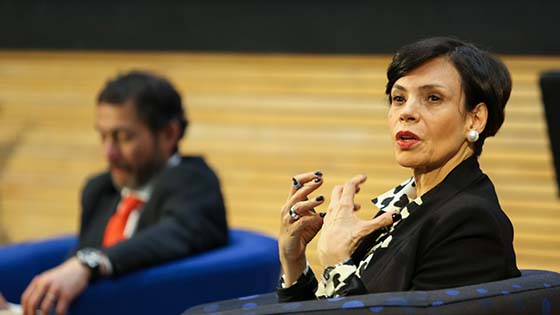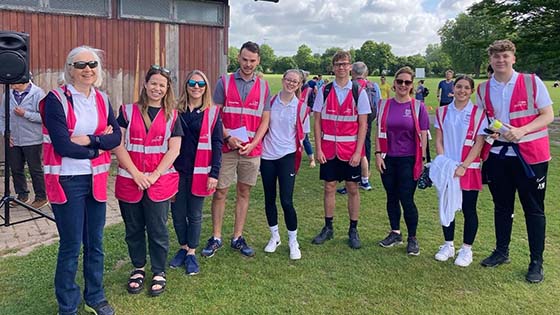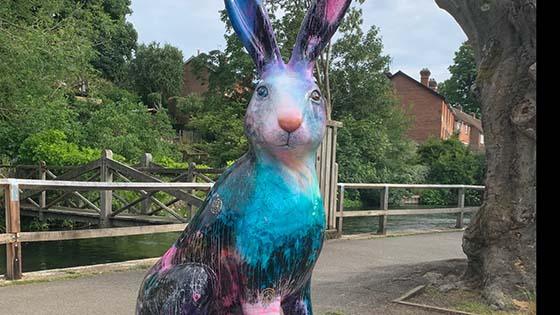Here are the highlights of June 2022 at the University of Winchester, with academic, creative and community initiatives in the spotlight.
Archaeologists, led by Dr Paul Everill, have contributed a paper to Ukrainian journal Arheologia, one of the oldest archaeological editions in Eastern Europe.
They responded to a call for support by Dr Tetiana Schevchenko, executive secretary of the journal, who said that the most valuable support that peer-archaeologists could provide to their Ukrainian colleagues would be to contribute papers. While Ukrainian archaeologists are eager the journal continues to publish despite the circumstances on the ground in Ukraine, there is a predictable shortage of papers.
Dr Everill brought together colleagues who had previously worked together on the topic of therapeutic archaeology for military veterans, including work with Georgian and Ukrainian veterans at an archaeological site in Nokalakevi, and analysing wellbeing data from UK veterans. They swiftly put together a paper for Arheologia bringing these datasets together.
The journal was published online in late June in Open Access via their website.
Dr Everill said: "Obviously this is only a really small gesture in the scheme of things, but as an academic this felt like something positive I could do to help."

His Excellency the High Commissioner for St Vincent and the Grenadines Mr Cenio E Lewis received a warm welcome from Vice-Chancellor Professor Sarah Greer when he visited us to find out more about a collaborative research project led by Dr Christina Welch, Reader in Religious Studies, who is working with Kew Botanic Gardens, the Natural History Museum, the Linnean Society, the St Vincent Botanical Garden, Museum Detox Interpretation Group, and the Antonio Carluccio Foundation.
Established in 1765, St Vincent Botanical Garden (SVBG) was among the earliest tropical gardens in the world, and the first in the British colonial Caribbean. Dr Alexander Anderson (1748-1811), a Scottish surgeon and botanist, served as SVGB's superintendent during its early development, from 1785 to 1811.
The AHRC funded research project, Unearthing the contribution of indigenous and enslaved African knowledge systems to the Saint Vincent Botanical Garden under Dr Anderson (1785-1811), will digitise the Anderson archives held by the Linnean Society. Digitisation will allow global online access to these important historic resources for the first time. The project will also interrogate the digitised archive against wider material - letters sent by Anderson held at Kew Botanic Gardens, historic plant specimens held by the Natural History Museum, and receipts relating to SVBG and further plant catalogues held at the National Archive.
The entire Anderson archive will then be analysed to detect and document the contributions made by the indigenous (Carib/Garifuna) and enslaved African peoples whose knowledge and physical labour fed into successful development of SVBG, and western scientific knowledge more generally.
The photo above shows (left to right): Dr Christina Welch; Professor Sarah Greer; His Excellency Mr Cenio E Lewis, and Dr Niall Finneran.
More information about the research project is available here.
This project is one of ten interdisciplinary research projects that have been awarded funding as part of 'Hidden histories of environmental science', s a collaboration between the Arts and Humanities Research Council (AHRC) and the Natural Environment Research Council (NERC) to understand how the future of modern environmental science can be informed by the past. Find out more here.

Guests and VIPs witnessed a moving dialogue of reconciliation and peace at a special international event hosted in The Stripe auditorium this month.
Bertha Fries, a victim of the Revolutionary Armed Forces of Colombia's (FARC's) infamous car bomb attack on the El Nogal Social Club in Bogotá, Colombia, in 2003, was present, with Rodrigo Londoño, last commander-in-chief of the FARC before the group disarmed in 2017, joining via video link.
The duo's conversation showcased who they were before the car bomb; what the impact of the car bomb in their lives was; how and when they met for the first time; how they have been working for reconciliation, how they reconciled and what they envisage as their future efforts to help heal a nation fractured by war. At the end of the event, Rodrigo Londoño said that love is what makes reconciliation possible and his words resonated in The Stripe.
Dr Gwen Burnyeat (Merton College, University of Oxford) translated and VIP guests included Her Excellency Bárbara Montalvo Álvarez, Cuban Ambassador to the UK, Iván Briscoe, Director for Latin America, International Crisis Group, John Dew, former UK Ambassador to Colombia and Richard Crosfield, Colombia Coordinator, Amnesty International UK.
 BSc (Hons) Physiotherapy students joined members of University staff under the banner of the University's Winchester Health Clinic to support the Winchester Park Run, led by Liam Newton, Manager of the Clinic.
BSc (Hons) Physiotherapy students joined members of University staff under the banner of the University's Winchester Health Clinic to support the Winchester Park Run, led by Liam Newton, Manager of the Clinic.
The nine-strong team undertook a variety of jobs at the event, including marshalling, organising runners into the funnel at the end to get an accurate time, and scanning timing barcodes, as well as manually entering runners' data to the online system if the scanning didn't work.
Liam (pictured fourth from left above) said: "Everyone had a fantastic time and there was a real 'feel good' factor about the morning. As well as some fantastic community engagement, we hope the event raised the profile of the Winchester Health Clinic and Winchester runners will know to come to us for high value, affordable physiotherapy treatment."
Professor Tim Hall is lending his expertise to a new project led by the University of Plymouth to assess the precise effects of organised crime on farmers, and their families, in Devon and Cornwall.
Working alongside co-researcher Richard Yarwood, Professor of Human Geography at the University of Plymouth, and colleagues at Devon and Cornwall Police he will help to identify and map the impacts of organised crime in rural areas.
Professor Hall said: "Organised crime has been seriously impacting the agricultural community in the UK for more than a decade now. Despite this there has been very little academic research into the issue. We hope this project will tell us more about the patterns and impacts of organised crime in the countryside and will also inform how this growing area of rural crime can be more effectively tackled."
 On 16 June, the Hares of Hampshire art trail launched across the cities of Winchester and Southampton. The University's giant hare sculpture - Be Your Beautiful Self painted by local artist Jenny Muncaster - was unveiled in its location on the Weirs Riverside Walk.
On 16 June, the Hares of Hampshire art trail launched across the cities of Winchester and Southampton. The University's giant hare sculpture - Be Your Beautiful Self painted by local artist Jenny Muncaster - was unveiled in its location on the Weirs Riverside Walk.
The art trail continues through the summer until 25 August and aims to raise funds for Southampton Children's Hospital.
Find out more about our involvement in Hares of Hampshire.
Find out more about the inspiration behind the design in artist Jenny Muncaster's blog.
Marking the 10th anniversary of the London Olympics, Dr Vicky Randall, Senior Fellow in the Institute of Education at the University of Winchester, and co-author Gerald Griggs, of the University Campus of Football Business, argue that, if we are not to squander the legacy of London 2012, we should ensure that the physical education of young people is fully integrated into the school curriculum with funding that is both sustainable and accountable.
Press Office | +44 (0) 1962 827678 | press@winchester.ac.uk | www.twitter.com/_UoWNews
Back to media centre